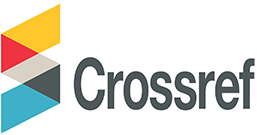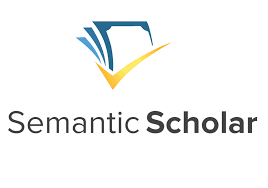Revival and Resilience: Social-Psychological Dimensions of the Return to Liberated Karabakh
DOI:
https://doi.org/10.69760/aghel.02500122Keywords:
Repopulation, Post-Liberation Recovery, Social Cohesion, Psychological Resilience, National IdentityAbstract
This study examines the multidimensional impact of repopulation in the territories liberated following the 2020 conflict. It analyzes the transformation of community structures and the psychological well-being of forcibly displaced Azerbaijanis. The investigation reviews the historical legacy of occupation, detailing the hardships experienced during periods of displacement, and contrasts these with the post-liberation resurgence marked by community reunification, infrastructural rehabilitation, and cultural revival. Through a comparative analysis of conditions under occupation versus the renewed phase, the study highlights how state policies, grassroots initiatives, and targeted support programs have facilitated both social cohesion and emotional recovery. Emphasis is placed on the integrated approach that combines the rebuilding of physical infrastructures—such as roads, schools, and public facilities—with efforts to restore familial bonds and cultural identity. The findings suggest that these dual dimensions of recovery are crucial for fostering long-term stability, national pride, and economic progress. This work contributes to the understanding of post-conflict recovery processes and offers insights into strategies for sustainable development and psychological healing in regions emerging from prolonged conflict.
References
Demirtepe, T., & Laciner, S. (2004). The role of the Karabakh issue in restoration of Azerbaijani nationalism. Yönetim Bilimleri Dergisi, 2(1), 187-207.
Ismayilov, K. (2024). Azərbaycanda Böyük Qayıdış: məşğulluq üçün çağrışlar və gözləntilər (The Great Return in Azerbaijan: Employment Connotations and Expectations for).
Ismayilov, K. The Great Return and employment policy: opportunities and expectations (Böyük Qayıdış və məşğulluq siyasəti: imkanlar və gözləntilər).
Garibli, I. (2024). Reconsideration of Civil Cases in the Courts of the Republic of Azerbaijan under Cassation Procedure. Acta Globalis Humanitatis Et Linguarum, 1(1), 173-179. https://doi.org/10.69760/aghel.024066
Kurban, V., & Ergün, O. (2021). The War Between Period and Exclamation Mark: New Reality and Nagorno-Karabakh: The Cemre that Fell to Nagorno-Karabakh. Tarih İncelemeleri Dergisi, 36(1), 209-251.
Marzano, A., Vegliante, R., Miranda, S., & Formisano, M. A. (2017). La didattica per progetti nell’insegnamento di Metodologie e tecniche della ricerca educativa. ITALIAN JOURNAL OF EDUCATIONAL RESEARCH, (19), 227-240.
Mehdizadə, G. M. (2022). Qarabağ və Şərqi Zəngəzur iqtisadi rayonlarının turizm potensialı və sosial-iqtisadi inkişaf perspektivləri (Master's thesis, Khazar University (Azerbaijan)).
Melikova, L., & Aliyev, S. (2023). Economic-historical aspects of the development of Karabakh (18-21 centuries). Scientific Collection «InterConf+», (39 (179)), 38-46.
Məmmədov, M. A., & Qasımlı, M. B. (2024). Şərqi Zəngəzur nəqliyyat dəhlizinin neft-qaz sənayesinin tikinti sektorunun inkişafinda rolu.
Məmmədova, S., Məcidova, A., Hənifəyeva, G., Eyvazov, M., & Quliyev, F. (2024). Qarabağ və Şərqi Zəngəzur iqtisadi rayonlarına 2026-cı ilədək köçürüləcək əhalinin bacarıqlarının inkişafı və yeni iş yerlərinin yaradılması (Doctoral dissertation).
Musayev, A., Aliyev, K., Maharramova, S., & Gazanfarli, M. (2022). Postwar Karabakh: What Is the Resettlement Potential?. Caucasus Analytical Digest, (128), 10-14.
Shamilov, G., & Kara, C. Ö. D. (2021). Birinci Dağlık Karabağ Savaşı Göçmenlerinin Sosyo-Ekonomik Sorunları: Bakü Binegedi İlçesi Örneği. Yönetim Bilimleri Dergisi, 19(Özel Sayı), 107-136.
Sipahi, E. B., Özsoy, B., & Qasımlı, M. (2022). Nisan savaşlarından vatan muharebesine: Azerbaycan’da “Böyük Qayıdış” süreci üzerine bir değerlendirme. Dumlupınar Üniversitesi Sosyal Bilimler Dergisi, (72), 198-217.
Downloads
Published
Issue
Section
License
Copyright (c) 2025 Acta Globalis Humanitatis et Linguarum

This work is licensed under a Creative Commons Attribution-NonCommercial 4.0 International License.







